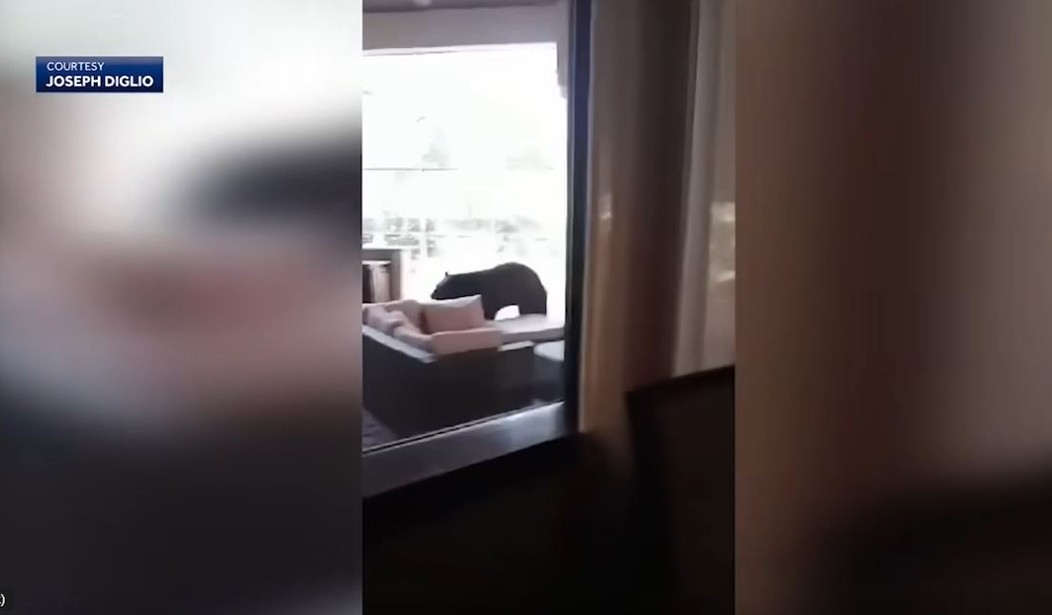First, it was Florida Man - now it's Florida Bear. A recent video shows a black bear breaking into a Seminole County home and guzzling three White Claws before making his escape. (I find I must take issue with the bear's taste in adult beverages, but that's a topic for another time.)
A three-legged bear who wanted to join in on the Labor Day weekend festivities was caught swiping White Claws from a Floridian family’s outdoor fridge.
Shocking video shows the black bear — affectionately known in the neighborhood as “Tripod” — nonchalantly sauntering Sunday across the screened-in patio in Lake Mary, a city roughly 20 miles north of Orlando.
Joseph Diglio, 13, was watching TV inside the home when the family’s dog, Bruno, erupted into chaotic barking.
“This is, like, once in a lifetime …” the astounded teenager can be heard saying in footage he snapped on his cellphone shared with WESH.
“There’s a literal bear in our patio … Oh my God, I’ve never been this close to a bear.”
Fortunately, nothing went seriously wrong in this encounter, but let's paws for a moment and think about the possible implications.
We have in our library a copy of a book by Canadian biologist Stephen Herrero, who is considered one of the world's foremost experts on bear attacks. This work, Bear Attacks: Their Causes and Avoidance, is considered definitive among behavioral biologists. I've read it several times, and always seem to glean some new tidbits; it's a vital read for anyone that lives in bear country. In the book, Dr. Herrero presents a number of case studies on bear attacks as well as some statistical analysis of those attacks, and one of the more interesting conclusions he arrives at is that while the notorious grizzly bears are more likely to attack to protect their young or defend a carcass or other food source, black bears - like this one in Florida - are more likely to attack with predatory intent. In other words, while a grizzly may be satisfied with just beating the daylights out of you, a black may be trying to eat you.
And this bear, nicknamed "Tripod" for its missing leg, presents the added danger of being disabled; this makes it more difficult for the animal to feed itself and therefore it's more likely to turn to more easily obtained food sources - which human habitations provide.
As human settlements expand into areas occupied by apex predators, it's inevitable that some of those predators learn how to live in close proximity to humans, which often doesn't end well for humans or predators. Here in Alaska, even in the state's biggest city, there have been attacks by bears and moose. Those of us who live out in the woods see large animals all the time; moose are a constant wintertime visitor to our own Susitna Valley homestead, and wolves and both black and grizzly bears are known to pass through the area.
That's a trend that is only going to grow more prevalent, almost everywhere in the U.S., as people continue to move away from the big cities and into what have been rural areas. The resident named in this story presented a viewpoint that, while common, should be a matter of concern:
Faneite-Diglio said that Tripod is a well-liked member of their Seminole Country neighborhood.
“I was not scared because we know the bear really well. He lives here; we respect their habitat as much as we can.”
The neighborhood should exercise a little more caution here. A bear is only harmless until it isn't.
So, if one wishes to avoid an encounter that one might bearly survive, it's best to give black bears and other large predators a wide berth. Wildlife should only be approached by people who are koalafied to deal with them and who won't panda to the fondness any neighborhood may have for an animal, lest the worst pawssible thing happen.














Join the conversation as a VIP Member